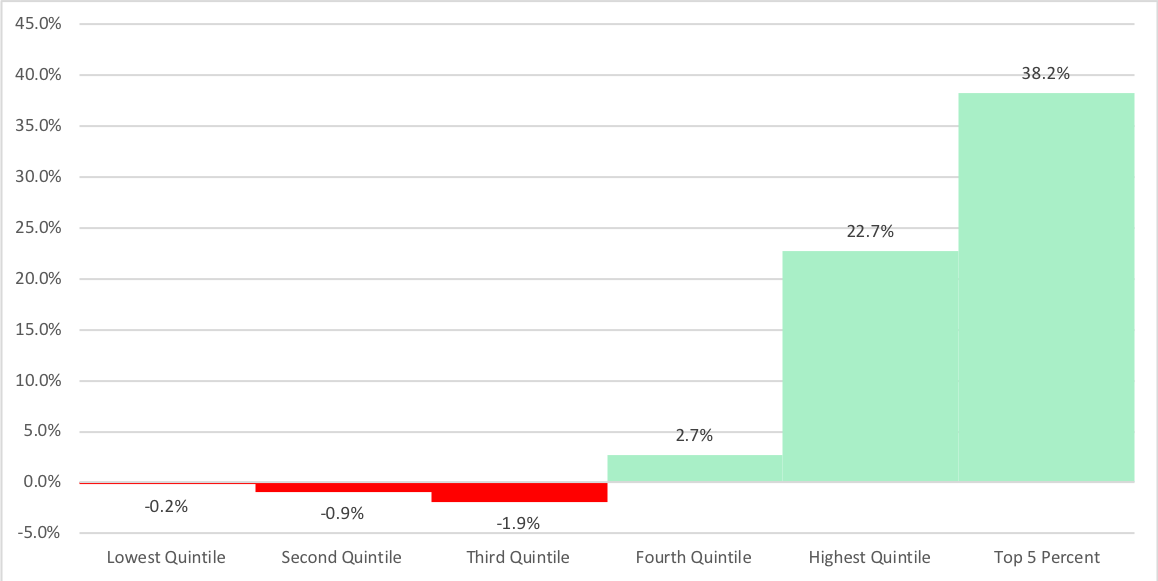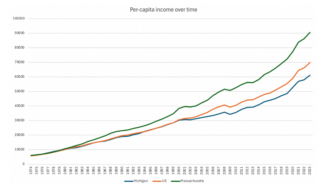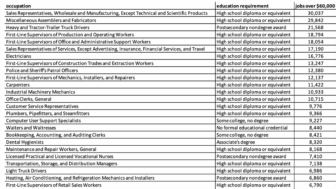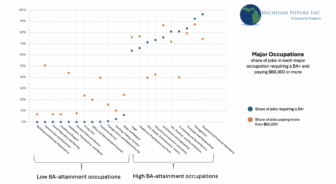
Governor Whitmer framed her announcements of expanding access to food assistance, cash assistance and State Emergency Relief and to increase the number of workers eligible for overtime pay in terms of helping Michigan’s ALICE households. This is exactly the approach to economic policy that Michigan most needs now.
One that is focused on raising household income for all. The simple reality is you do not have a good economy when 43 percent of Michigan households cannot pay for basic necessities. The state’s focus needs to shift from a low unemployment rate and measures of economic growth to a focus on whether Michigan households can pay the bills, save for their retirement and the children’s education.
This is the primary economic challenge of our times: creating an economy that as it grows benefits all. Despite a low unemployment rate and decent economic growth, Michigan has had anything but an economy that is benefiting all. Between 2006 and 2017 average household income adjusted for inflation for the bottom 60 percent of Michigan households has been flat. For those between the 61st and 80th percentile real average household income is up 2.6 percent. For those in the top 20 percent of Michigan households real average household income is up 10.7 percent. Clearly not an economy that as it grows is benefiting all.
The Governor’s actions use the two main levers for meeting the goal of a rising household income for all: expanding the safety net and employer mandates. With 60 percent of Michigan jobs paying less than $20 an hour and 40 percent paying less than $15 an hour, there is no way to substantially lower the ALICE rate from a way too high 43 percent without boosting wages and benefits for those in lower-paying jobs.
Yes we need better education and training to help people take advantage of the better-paying jobs that are available. But, as Seattle venture capitalist Nick Hanauer has detailed, there just are not enough of those jobs. So that you can’t educate your way out of a high ALICE rate.
And the evidence is that you don’t sacrifice a growing economy and a high proportion of adults working with an expanded safety net and employer mandates. As we have explored frequently, Minnesota has the most expansive safety net in the Great Lakes and is the Great Lakes lowest ranked state in the Tax Foundation’s 2020 State Business Tax Climate Index and it has by far the best economic outcomes, across the board, of the Great Lakes states.
Governor Whitmer’s actions to expand access to safety net benefits by allowing lower-income households to save more without losing benefits and to require overtime pay for those making substantially more than federal law requires are important components of a rising household income for all state economic policy. In our Sharing prosperity with those not participating in the high-wage knowledge-based economy report we detail other ideas on what the state can and should do to assure that we have an economy that as it grows benefits all.
Governor Whitmer’s focus on improving the economic well-being of Michigan’s ALICE households is the focus that we need from all state policymakers. We can debate how to achieve an economy that benefits all, what we cannot do is celebrate an economy that is leaving so many behind.







